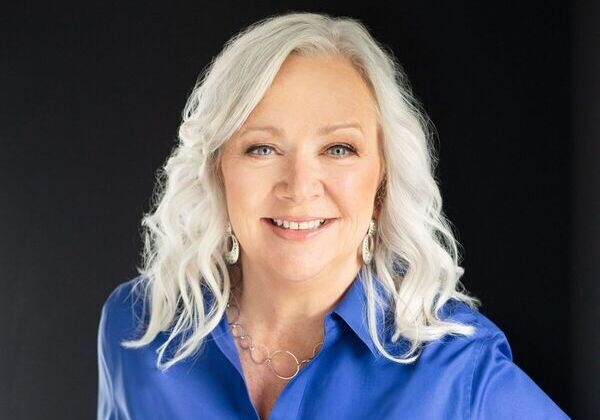
Vista Points Inc Claimed
The Special Needs Trusts & Resource Center
Vista Points, Inc. is dedicated to raising awareness about Special Needs Trusts. The organization provides trustee services for three types of Special Needs Trusts: first-party or self-settled special needs trusts, third-party supplemental needs trusts, and the pooled special needs trust. Through community outreach activities and educational programs, Vista Points promotes the advantages of Special Needs Trusts to those who will most benefit from them, including people of any age living with a physical, mental or intellectual disability, their parents and caregivers, and the professionals who serve and guide them.
FAQs
1. What is the difference between a First Party and a Pooled Special Needs Trust?
The differences between a First Party & Pooled Special Needs Trust are: If the person with the disability (the beneficiary) is over 65 years old, a pooled trust must be used. A non-profit organization will be the trustee of this pooled trust. A first party trust can be established by the person with the disability, a parent, grandparent, court, or guardian. This type of trust is funded with assets belonging to the person with the disability, as is the same with the pooled trust. The assets, for both types of trusts, may include personal savings, a personal injury settlement, a retirement plan, a divorce settlement, proceeds from the sale of property, and inheritance.
2. My mom lives with me. She is disabled with Parkinson’s Disease. I take care of her, take her to all her doctor appointments and for therapy. I basically provide all of her care. Will her First Party Special Needs Trust pay for repairs and maintenance on my car?
The short answer is No. The trust funds must be used only for the benefit of the trust beneficiary, your mother. There is often confusion because of many variables such as the trust size, age or condition of the beneficiary, terms of the trust itself. However, none of these variables make a difference. The law states that only the vehicle belonging to the beneficiary can be repaired and have routine maintenance paid for by the beneficiary’s trust.
3. What happens when my sister’s Third-Party Supplemental Needs Trust runs out of money?
When your sister’s Trust has depleted its assets or funds, it is closed. A final distribution of appropriate fees will be taken, as stated in the Trust documents, for closing of the trust, prior to the trust being closed.
4. What type of attorney do I use to establish a special needs trust? Do attorneys specialize in providing services for people living with a disability?
Vista Points works with attorneys from around the country who specialize in Estate Planning and Trusts, Elder Law, and Family Law, along with trial attorneys well as other reputable attorneys who work in the best interest of their clients. Vista Points does not have any attorneys who work for the company. All attorneys are independent. This ensures there is no conflict of interest between Vista Points, the attorney, and the beneficiary. The attorney should understand federal Social Security programs and the eligibility requirements; Social Security Disability Insurance, Medicare, and the American’s Disabilities Act (ADA).
5. What types of items or services can be paid from a Special Needs Trust?
The Trust funds must be used for the sole benefit of the Trust Beneficiary. Trust funds can be used to pay for items and services such as: non-medical home health services, alternative therapies, travel, home furnishing, computers and other electronic equipment, entertainment, clothing, out of pocket medical and dental expenses, audiology exams and hearing aids, vision exams and glasses, and more. The best advice is always to ask the trustee, before a purchase is made, if the beneficiary’s trust can pay for this item or service. Pre-approval will avoid future problems in seeking payment from the trust.
6. If we put the house in the Special Needs Trust, can we sell it when we want?
Simply put, No. A Special Needs Trust is an Irrevocable Trust. An irrevocable trust effectively removes all the beneficiary’s rights of ownership to the assets in the trust. This action protects the beneficiary’s government eligibility for SSI (Supplemental Security Income) and Medicaid. The house in the trust can be sold, but only by the trustee, however the proceeds must be deposited into the trust, for use by the beneficiary
7. My son has a disability but does not receive government benefits. Can he use a Special Needs Trust?
Yes. A person living with special needs, or a disability (physical, mental, or intellectual), does not have to use government benefits. However, the benefits are there as a resource for the person with the disability (the beneficiary) to help with day-to-day expenses, healthcare, and much more. A Special Needs Trust can be established for the beneficiary. There are three types of special needs trusts. Please consult with an attorney as to which type of special needs trust is best for the beneficiary to establish. A special needs trust helps the beneficiary to live a good quality of life. The trust also gives the family peace of mind knowing a professional trustee is managing the trust.
8. My sister’s son (nephew) has Down Syndrome, however he is high functioning and works one day per week. If we set up a Special Needs Trust (SNT) for him, can I be his financial advisor?
Each special needs trust has a responsible party that helps to manage the day-to-activities of the beneficiary. This person is called the attorney-in-fact or advocate, depending on the type of special needs trust that is established. The responsible party can make suggestions and work with the trustee, in how they would like a portion of the beneficiary’s trust funds invested for a first party or third-party trust.
9. What if I have Huntington’s disease, can I have a Special Needs Trust?
Yes. Huntington’s Disease is a progressive brain disorder caused by a defective gene. Huntington’s falls under the Dementia category, which is a diagnosed disability. A Special Needs Trust could definitely be established and be used to provide quality of life to a person with Huntington’s Disease.
10. Can any type of attorney create a Special Needs Trust?
Legally yes, however, it is recommended to use an attorney who is trained and experienced in establishing special needs trusts. If you would like to be referred to an attorney, please contact Vista Points. The organization has a national database of attorneys who may be able to assist you in establishing a special needs trust, for the beneficiary who is living with a physical, mental, or intellectual disability. Please note, Vista Points requires you to meet with a qualified attorney to determine if a special needs trust is your best option.






